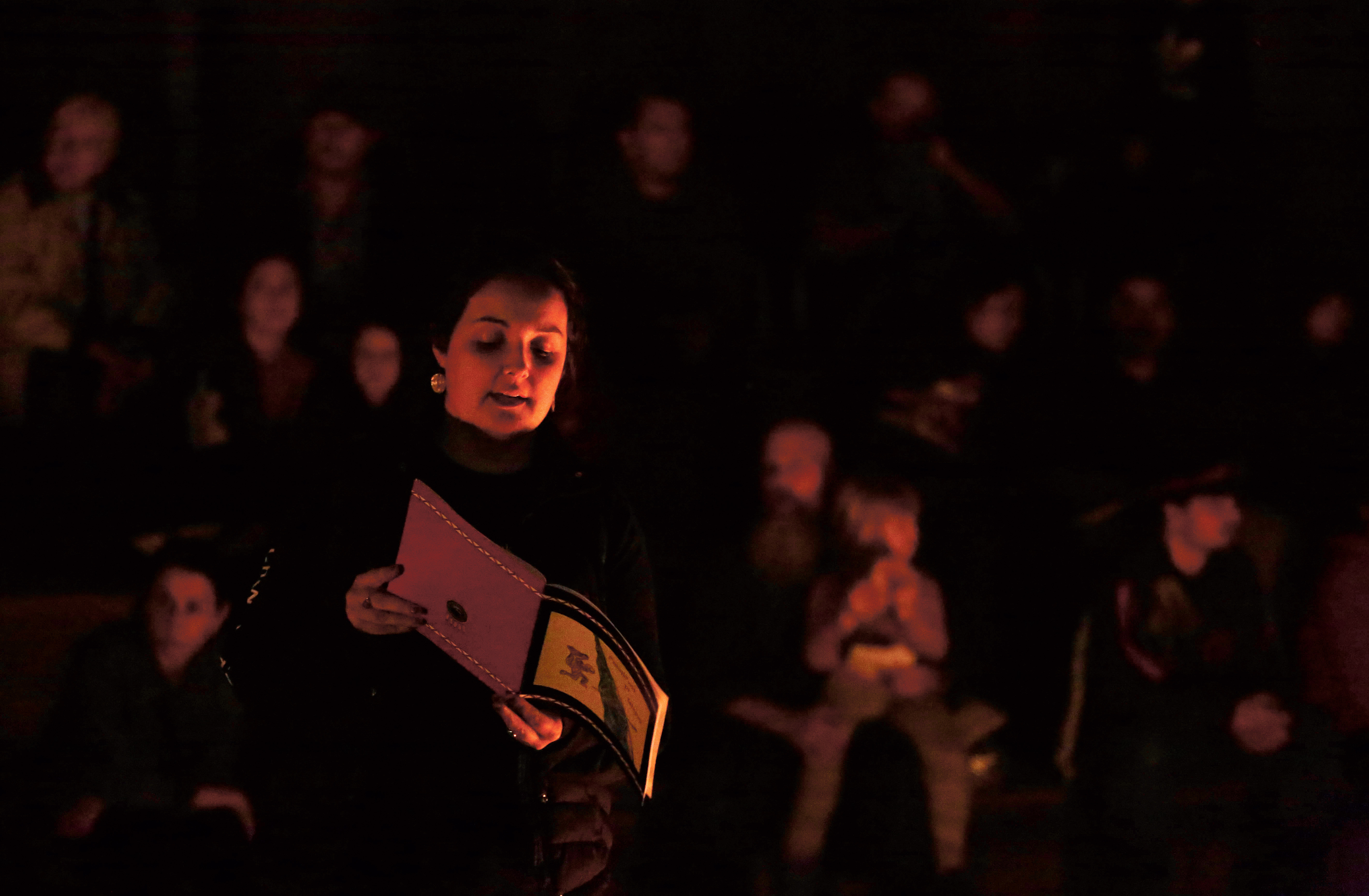Health & Education
Chinuk Wawa language program continues to evolve

By Danielle Harrison
Smoke Signals assistant editor/staff writer
A grant from an Oregon nonprofit that benefits rural communities will make a difference in Grand Ronde.
The Northwest Indian Language Institute recently received funding from The Roundhouse Foundation that it will use to explore how language preservation needs have shifted at Oregon’s nine federally recognized Tribes.
The Grand Ronde Tribe has collaborated with NILI for several years and will be a part of this project.
“This is a crucial partnership,” Chinuk Wawa Education Program Manager Ali Holsclaw said. “NILI has been here since we did our first preschool immersion class in 2000, right there in the development of it. They’re very familiar with our program, Tribe, history, language and culture. They helped us develop so much curriculum. That’s huge because we can’t buy it. We have had to create it and make it work at different grade levels. That’s really big, not to mention all the teacher trainings in linguistics, teaching methodologies, immersion strategies, all kinds of stuff.”
The Northwest Indian Language Institute is based in Eugene at the University of Oregon and it has collaborated with Oregon Tribes on language preservation programs since 1997.
“After 25 years, the landscape of Indigenous language has shifted into a new phase, and our in-depth analysis will help us strengthen relationships as well as evaluate the essential needs that Native communities now have when it comes to preserving this important part of their culture and history,” said NILI Acting Director Robert Elliott. “We expect that we will find an increased openness to the use of technology to support language learning, and a renewed emphasis on the overall benefits of youth involvement in Native language programs.”
He added that support from The Roundhouse Foundation has made it possible for NILI to collaborate more with Tribal communities and create an action plan for language revitalization for the next 25 years.
“Supporting Tribal Nations is a core part of our mission at The Roundhouse Foundation, and language preservation is essential to supporting the heritage and culture of Indigenous cultures and Tribal communities,” Executive Director Erin Borla said. “NILI serves a critical role in this arena and, as they move into the next phase of their organization, we are happy to support their efforts to authentically connect with the Tribal communities they serve so they may deeply understand how to enhance their program.”
Grand Ronde’s Chinuk Wawa program goal is to provide language immersion to create fluent speakers while strengthening cultural identity. In addition, community outreach is done to help ensure that the language remains recognized and important.
Holsclaw, 36, who has worked in the Tribe’s language program since she was a teenager, has collaborated with NILI on several different aspects of language revitalization over the years.
“Usually what happens is we get a grant or they do,” Holsclaw said. “One grant we usually get is the Administration for Native Americans grant, then we work with them to develop curriculum for our programs. They have been huge at developing it and we have also worked with them on a cultural and language literacy program, where students made a book in Chinuk Wawa. They also came and worked with the families in our immersion program, helping them put together their own stories and also printed copies for the classrooms.”
Currently, the language program includes both preschool and kindergarten through fourth-grade immersion programs at the Grand Ronde campus, middle and high school courses in the Willamina School District and for-credit options at Lane Community College. Additionally, there are weekly lessons at the Tribe’s Youth Enrichment Program, as well as community workshops.
Holsclaw said she sees Grand Ronde’s immersion program increasingly utilizing technology to help more people learn the language, regardless of how far away they live from Grand Ronde.
“The COVID-19 pandemic has really added an avenue of technology that we hadn’t looked at before,” Holsclaw said. “It really made us look into doing things different, that’s been really good because it helps give people access and we can reach them from anywhere. It’s really exciting because that builds the support and people become familiar with the language. That’s been a good way to reach people outside of the community.”
When the Chinuk immersion program began, it consisted of small and dedicated group of parents and children, Holsclaw added.
“We want to continue this effort to create fluent speakers of the language, but we are also growing and adapting. We have immersion efforts as well as outreach efforts. With immersion, we really want people to speak it and carry the language to the community. But we’re also learning how to utilize technology. We created a YouTube channel, beefed up our Facebook page and recently started using QR codes. That was new for us and the pandemic got us looking at other avenues to reach people, but it’s definitely not immersion.”
A new Chinuk language building on the Tribal campus is expected to be complete in 2023 and Holsclaw said she is excited about having all of the language-focused programs under one roof and the opportunities it will bring.
She anticipates that NILI will continue to partner with the Tribe to further these efforts as the technological landscape evolves.
“They have been here since the beginning and all of that knowledge and experience continues to be very valuable to our program,” she said.
